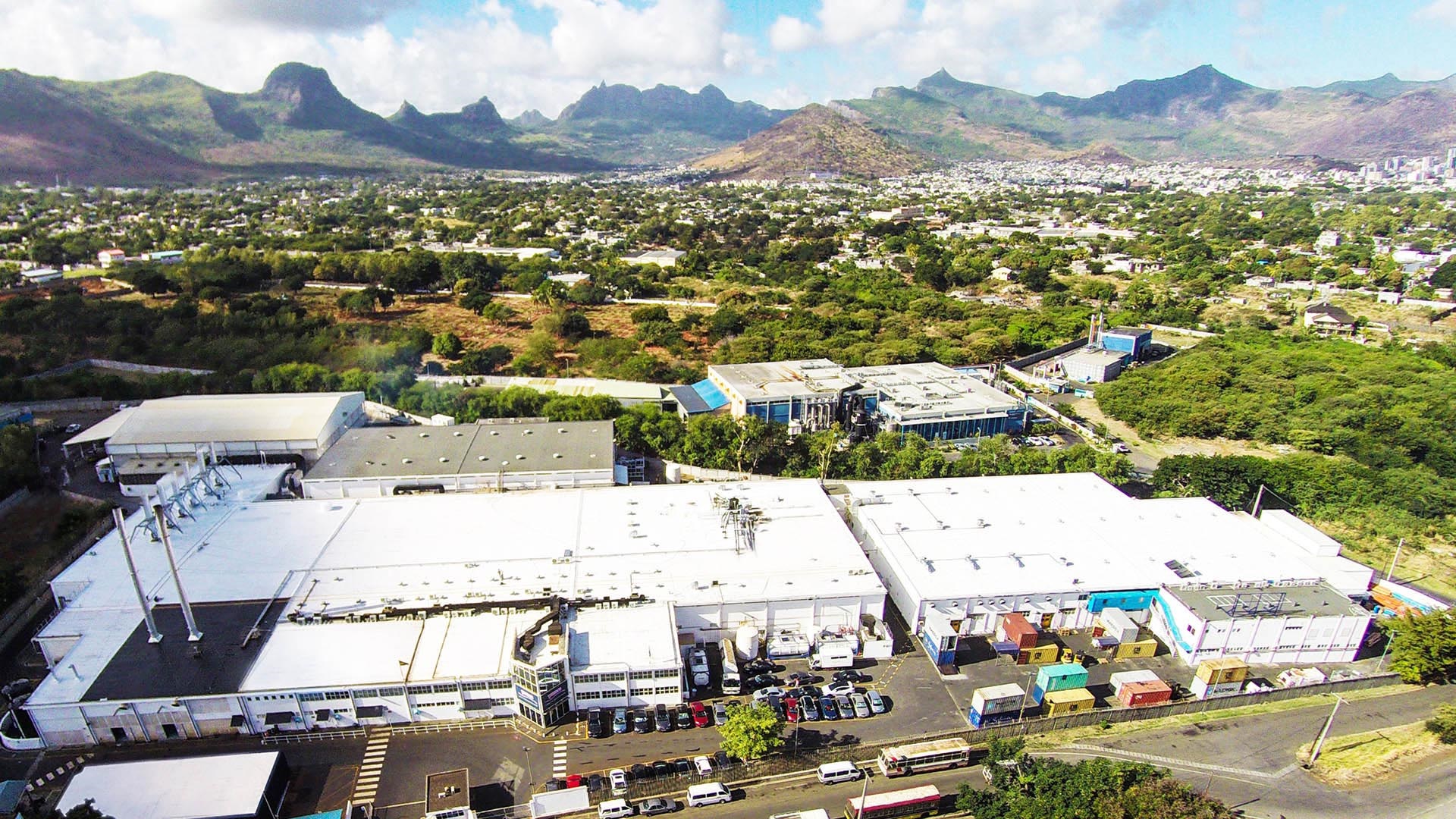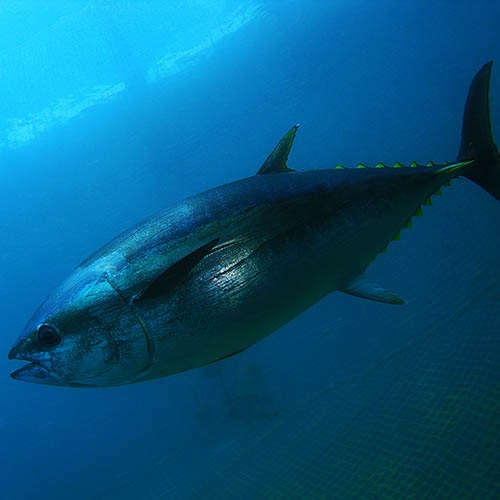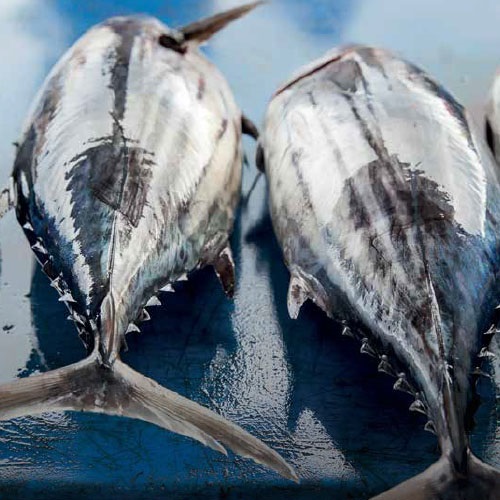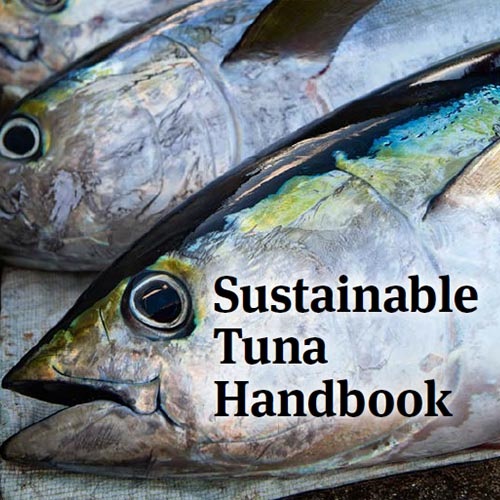In the first of our new series of interviews with market pioneers, Chris Shearlock, Senior Sustainable Sourcing Manager at Princes UK, reflects on credible labels, industry challenges and what gives him a buzz at work.
A self-confessed "environment nerd", Chris works at the food and drink company’s headquarters in Liverpool, north-west England. Having started out selling canned lobster in the 1880s, Princes are now committed to making all their canned Tuna MSC certified by 2025.
Talking Tuna, featuring Chris Shearlock of Princes UK
 What made you choose a sustainability role?
What made you choose a sustainability role?
I've been interested in the environment since I was five or six years old. I used to watch naturalist David Attenborough in the 1980s, so it's quite amusing that people have woken up to him in, say, the last five years. I went to university to study environmental management in the early nineties, and I've been working on food sustainability since the mid 2000s. It's what I'm interested in and I'm lucky enough to have a job in it.
Princes recently announced a roadmap to source all its branded tuna in the UK from MSC certified sources by 2025. What’s the story here?
This is the culmination of more than a decade's work, which started with Greenpeace protesting against Princes at our head office in Liverpool in 2011. We then worked with our supply chain, the boats that supply us. We've worked with our competitors, we entered into fishery improvement projects and, over the course of the decade, we've improved these. As a result, we now have a pipeline of MSC certified tuna that we can process at our sites in Mauritius. So over the course of a decade, we've responded to NGO concerns and we've moved to this position where we're able to get everything MSC certified by 2025.
Can we expect to see more MSC certified tuna in other markets?
We could see a massive opportunity for MSC certified tuna. The work of the purse seine fleets on getting into fishery improvement projects, over five to six years, means we've got a pipeline of this material coming through, so we expect to see this become the norm over the course of the next decade. And we're proud to have gone out in front of some of our competitors and set a target that all Princes brand UK Tuna will be MSC certified by 2025.
Are you setting similar targets in other regions or countries beyond the UK?
Princes works across northern Europe. We already have almost 100% of our tuna MSC certified in the Netherlands and will be there by the end of this year. We're also seeing increased demand from our retail customers – supermarkets in northern Europe that want MSC certified tuna as their standard.
Is there a way that other organisations will benefit from your initial work in this area?
As a result of the work that we've been involved in over the last ten years on fishery improvement projects and dialogue with RFMOs (regional fisheries management organisations), we can now see a massive pipeline of MSC certified tuna coming through and this will benefit everyone in the market.
We all need a common goal of MSC certified.
What are your consumers’ chief concerns around tuna?
Fish sustainability is a crucial issue for end consumers, but they want this to be something that translates simply, easily, effectively and that's why the MSC logo is so useful, because everybody recognises the blue tick.
This is much more effective than, say, looking at things like gear type – it needs to be pole and line, it needs to be FAD-free – that doesn't really work. We all need a common goal of MSC certified.
How or where are you hearing this from consumers?
The main way that we hear from end consumers is through our customers, who are the retailers. If you want to do business with a UK or European retailer on fish, you've got to get sustainability right. So, for every retailer out there, there is a counterpart I have [who] works in fish sustainability – if you don't meet their policies, you're not getting a foot in the door.
There are many standards and labels out there, why work with the MSC?
There are two reasons: first is that when a fishery goes through assessment, it's assessed to an independent, robust, scientifically validated standard by an independent body. And you've got to meet the three principles: are stocks at a level where you can continue fishing indefinitely; have you minimised wider environmental impact significantly enough, in areas such as bycatch, and thirdly, are the rules and regulations in place that you need to manage a fishery effectively so there's no cheating, there's trust, etc. So, it's robust, it's independent, and scientific.
The second one is because the logo itself is one that is very well known. End consumers appreciate it, pick up on it, recognise it and, in so doing, it gives us something simplified that we can aim for as a target.
Will the cost-of-living crisis affect demand for sustainable tuna?
Despite the cost-of-living crisis, we see absolutely no letup in demand for fish sustainability from our customer base – UK and European retailers. Tuna is a very well-priced, good value source of protein that we want sourced sustainably as well. So, we want to meet both criteria.
Getting a big project like that over the line is something I get a buzz out of.
Where do you find inspiration in your work and what’s the most enjoyable part of your job?
I get a buzz out of my job when we get a decade-long project, such as setting out a target to get 100% of our UK branded tuna MSC certified by 2025, over the line.

Princes Tuna processing facility, Riche Terre, Mauritius
What does Princes’ footprint around the world look like?
Princes sources tuna from all around the world – from the Indian Ocean, the Atlantic Ocean, and the eastern and western Pacific. But the Indian Ocean is the most important for us. We have two large tuna processing sites on the island of Mauritius, where we employ about 4,000 people, which is over half of all Princes employees globally.
In some years we process 100,000 tonnes of tuna through those two sites, and that's where the bulk of Princes tuna in the UK comes from. Sustainability in the Indian Ocean is, therefore, a business-critical issue to us. We know full well that if we don't have sustainable stocks of tuna in the Indian Ocean, it will be difficult to operate those factories. So, it is understood right up to board level that this is a business critical, business continuity issue.
Sustainability in the Indian Ocean is a business-critical issue to us.
There are challenges around adopting effective harvest strategies for tuna in the Western Central Pacific Ocean. How can these be best addressed?
Harvest control rules are the absolute foundation or cornerstone of sustainable fisheries management. We know that if you don't have a top level – what's the state of the stock and where do we cap our catches and manage them? – you don't have sustainable fisheries. In the western central Pacific, we would call on the WCPFC (Western and Central Pacific Fisheries Commission) to establish those rules because they are needed to show that those fisheries are managed sustainably.
What role can Princes playing in achieving this?
Harvest control rules are set by the country members of RFMOs – this isn't something that an individual company like Princes can do on its own – so we work with bodies like the Global Tuna Alliance to make sure that the voice of the market is given to them, saying, we want good management of stocks, we need harvest strategies, we need harvest control rules as the foundation for sustainable management.
Finally, what's your favorite tuna dish?
I'd just say standard tuna mayo sandwich, can't beat it. Sorry to be boring.
With cheese?
No, definitely no cheese.

Tuna and the new Fisheries Standard
Dr Rohan Currey answers some of the most pertinent questions about the new Standard's implications for tuna.

Sustainable tuna updates
Key tuna news, market trends and the latest data, updated quarterly.

Sustainable Tuna Handbook
A guide to sustainable tuna fishing and sourcing, with 2022 updates.
